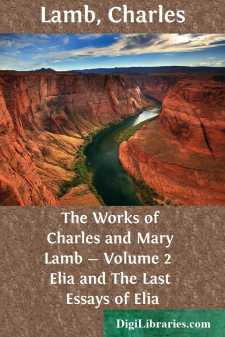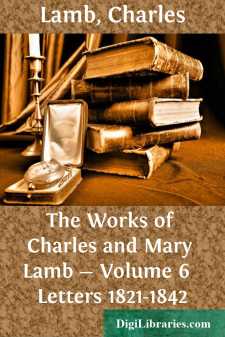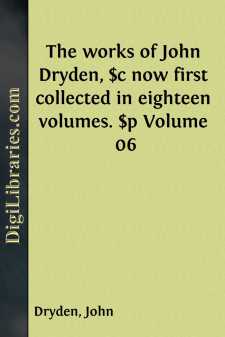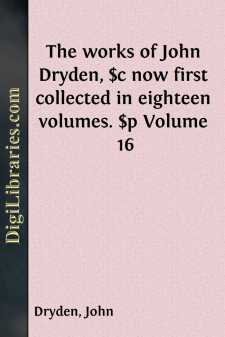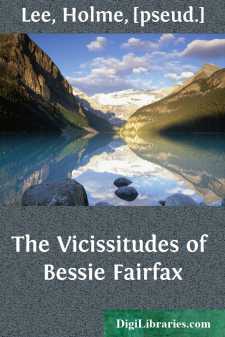Literary Collections
- American 84
- Ancient, Classical & Medieval 14
- Asian 1
- Australian & Oceanian 1
- Canadian 55
- Continental European 121
- English, Irish, Scottish, Welsh 179
- Essays 160
- General 24
- Letters 46
- Middle Eastern 1
Literary Collections Books
Sort by:
by:
Mary E. Herbert
CHAPTER I. The Sabbath day was drawing to a close, as Agnes Wiltshire sat at her chamber window, absorbed in deep and painful thought. The last rays of the sun lighted up the garden overlooked by the casement,—if garden it could be called,—a spot that had once been most beautiful, when young and fair hands plucked the noxious weed, and took delight in nursing into fairest life, flowers, whose...
more...
by:
Charles Lamb
ELIA (From the 1st Edition, 1823) THE SOUTH-SEA HOUSE Reader, in thy passage from the BankвÐâwhere thou hast been receiving thy half-yearly dividends (supposing thou art a lean annuitant like myself)вÐâto the Flower Pot, to secure a place for Dalston, or Shacklewell, or some other thy suburban retreat northerly,вÐâdidst thou never observe a melancholy looking, handsome,...
more...
by:
Charles Lamb
LETTER 264 CHARLES LAMB TO DOROTHY WORDSWORTH [P.M. January 8, 1821.] Mary perfectly approves of the appropriat'n of the feathers, and wishes them Peacocks for your fair niece's sake! Dear Miss Wordsworth, I had just written the above endearing words when Monkhouse tapped me on the shoulder with an invitation to cold goose pye, which I was not Bird of that sort enough to decline. Mrs. M. I am...
more...
by:
John Dryden
DUKE OF GUISE. A TRAGEDY. Ουτως δε φιλοτιμοι φυσεις εν ταις πολιτειαις το αγαν μη φυλαξαμεναι, τωιαγαθου μειζον το κακον εχουσι. Plutarch. in Agesilao.003In the latter part of Charles the Second's reign, the stage, as well as every other engine which could affect the popular mind, was eagerly employed in the...
more...
by:
John Dryden
AMBOYNA. The tragedy of Amboyna, as it was justly termed by the English of the seventeenth century, was of itself too dreadful to be heightened by the mimic horrors of the stage. The reader may be reminded, that by three several treaties in the years 1613, 1615, and 1619, it was agreed betwixt England and Holland, that the English should enjoy one-third of the trade of the spice islands. For this...
more...
by:
John Dryden
SCENE.—London. ACT I. SCENE I.—FAILER entering to BURR, who is putting on his buff-coat. Fail. What! not ready yet, man? Burr. You do not consider my voyage from Holland last night. Fail. Pish, a mere ferry; get up, get up: My cousin's maids will come and blanket thee anon; art thou not ashamed to lie a-bed so long? Burr. I may be more ashamed to rise; and so you'll say, dear heart, if...
more...
by:
John Dryden
THE CONQUEST OF GRANADA. This play,—for the two parts only constitute an entire drama betwixt them,—seems to have been a favourite with Dryden, as well as with the public. In the Essay upon Heroic Plays, as well as in the dedication, the character of Almanzor is dwelt upon with that degree of complacency which an author experiences in analyzing a successful effort of his genius. Unquestionably the...
more...
by:
John Dryden
LIMBERHAM. The extreme indelicacy of this play would, in the present times furnish ample and most just grounds for the unfavourable reception it met with from the public. But in the reign of Charles II. many plays were applauded, in which the painting is, at least, as coarse as that of Dryden. "Bellamira, or the Mistress," a gross translation by Sir Charles Sedley of Terence's...
more...
by:
John Dryden
His birth. His natural endowments, and first studies. His father purposes to recal him from his studies, and is diverted from that resolution. He continues his studies, and sets up a philosophy lecture. He is preserved from falling into heresy. His change of life. His retirement, and total conversion. He consecrates himself to God, by a vow. What happened to him in his journey to Venice. What he did at...
more...
by:
Holme Lee
CHAPTER I. The years have come and gone at Beechhurst as elsewhere, but the results of time and change seem to have almost passed it by. Every way out of the scattered forest-town is still through beautiful forest-roads—roads that cleave grand avenues, traverse black barren heaths, ford shallow rivers, and climb over ferny knolls whence the sea is visible. The church is unrestored, the parsonage is...
more...



